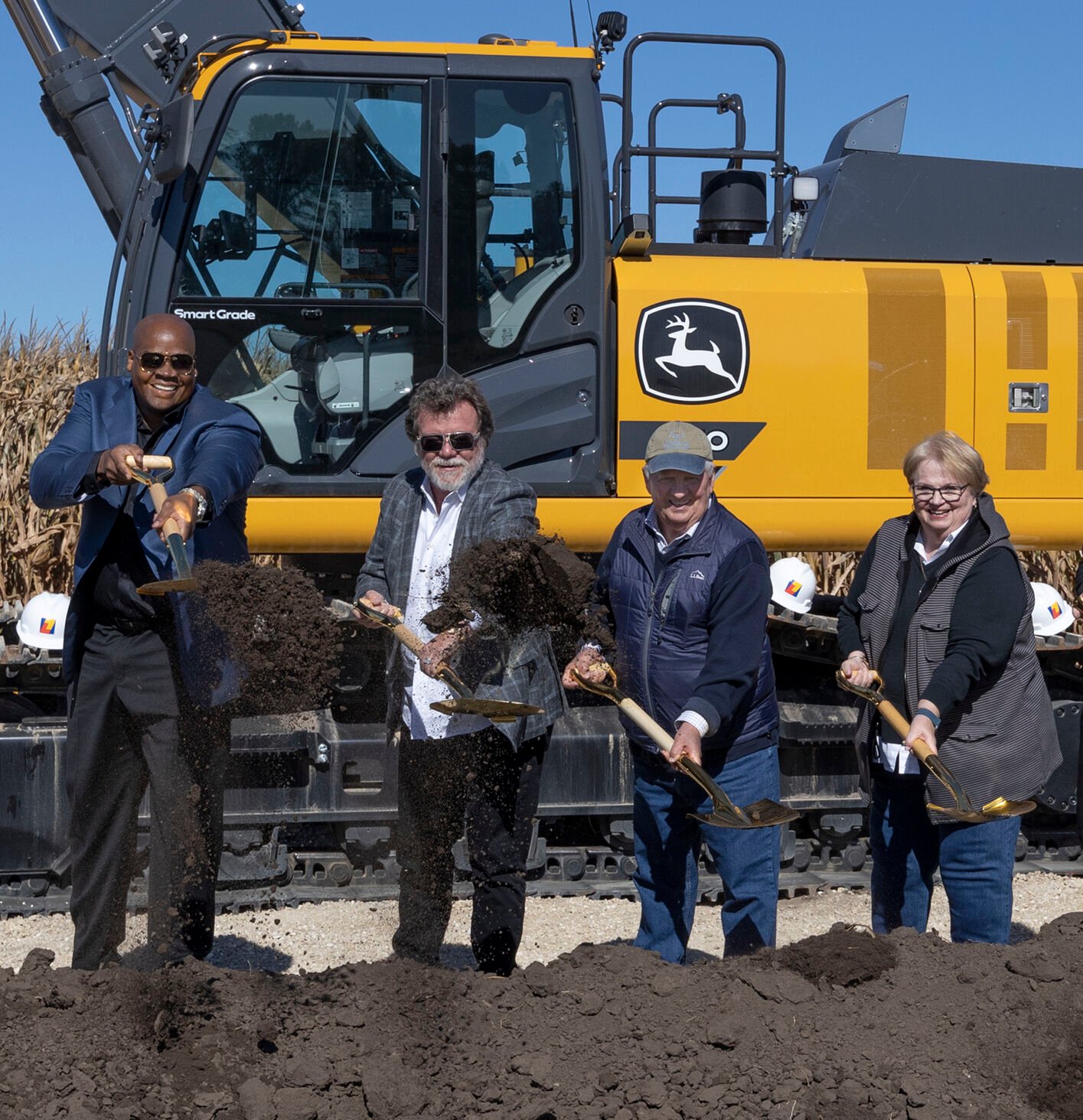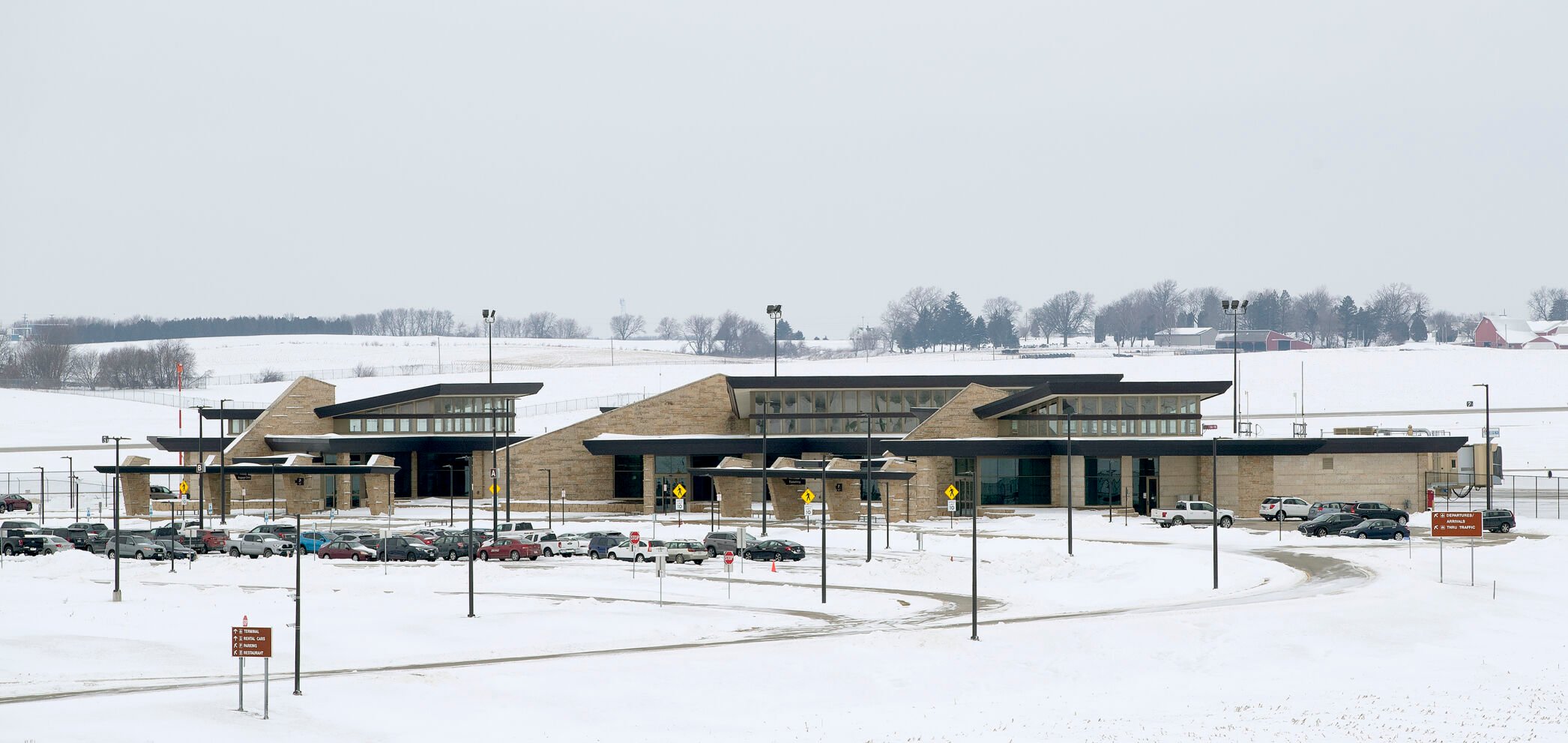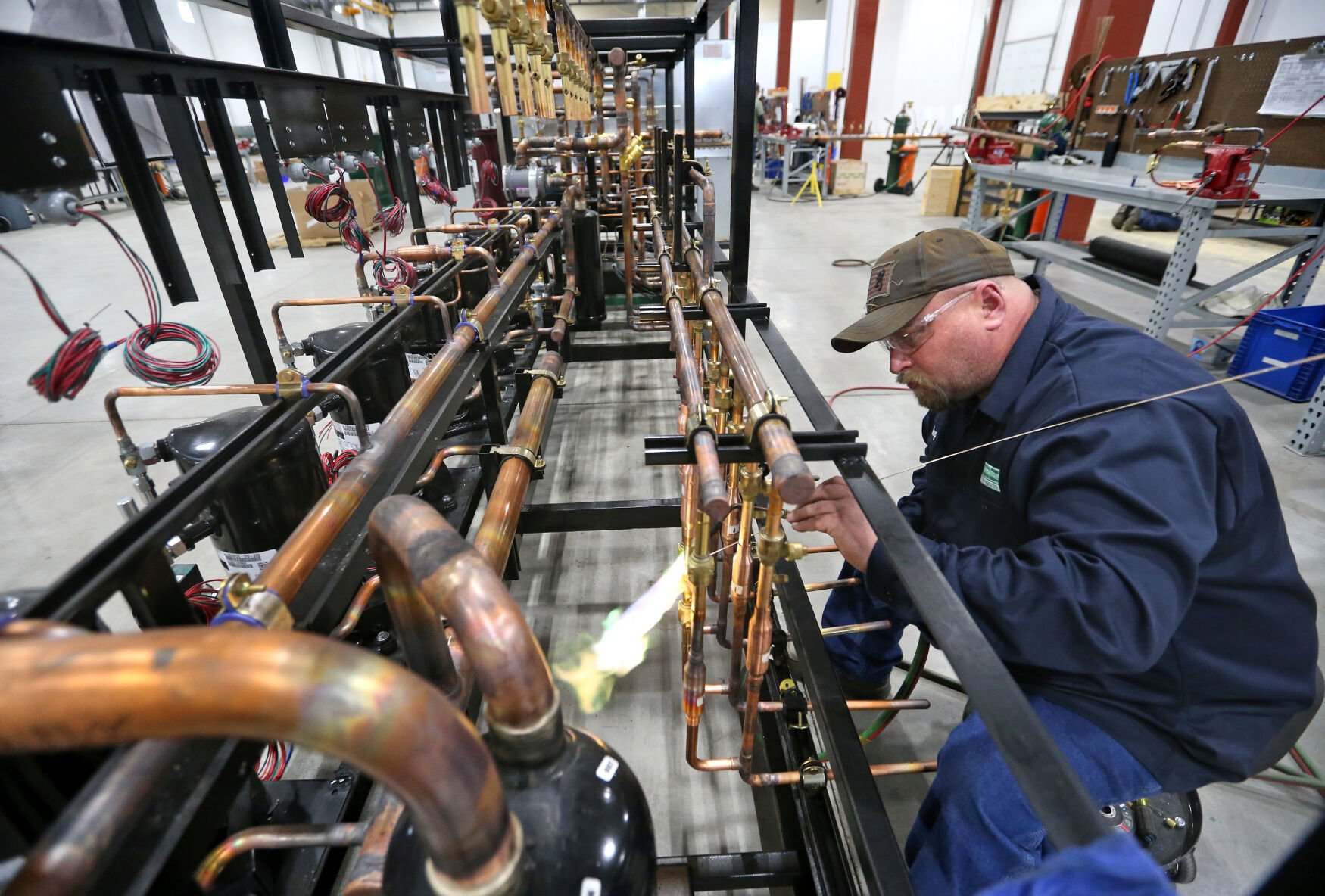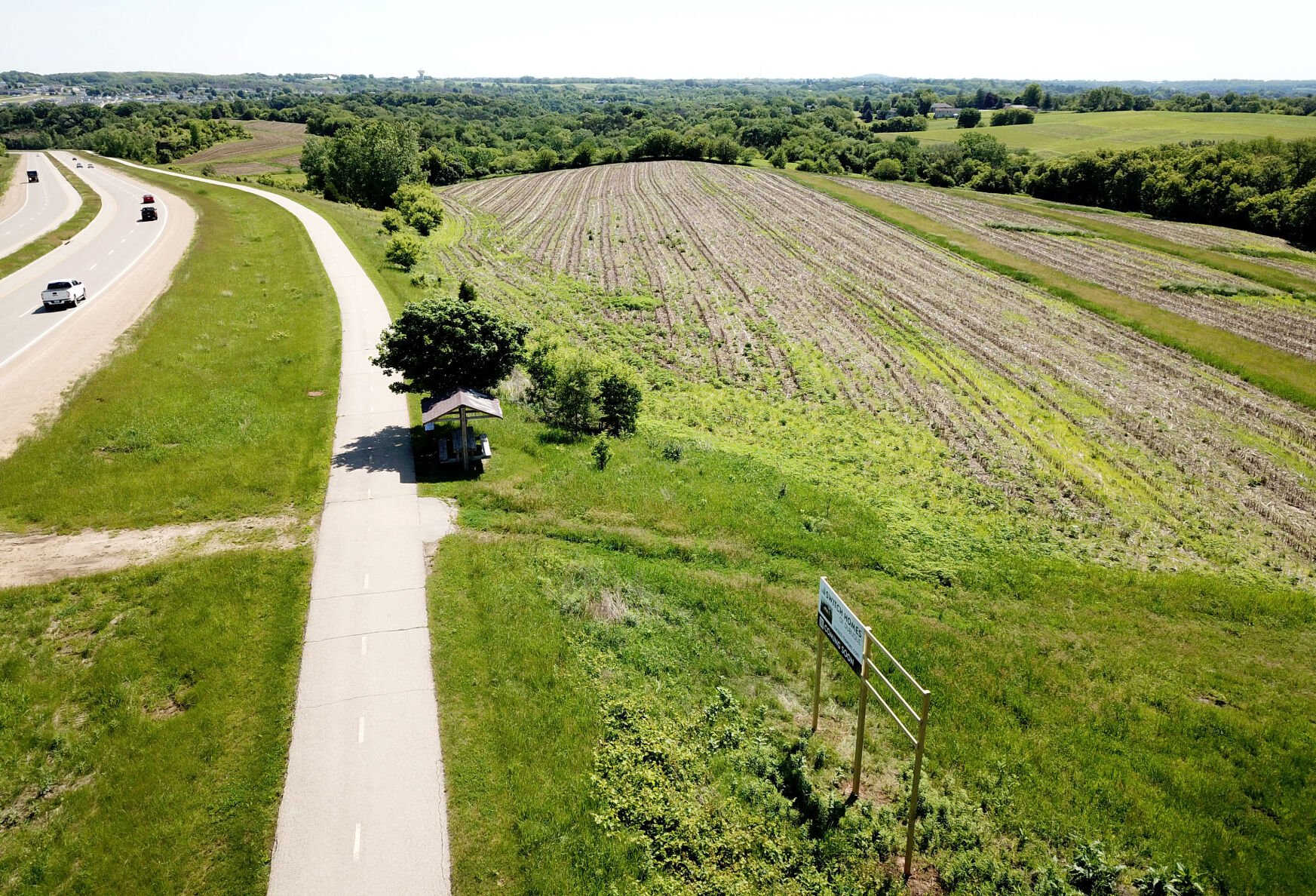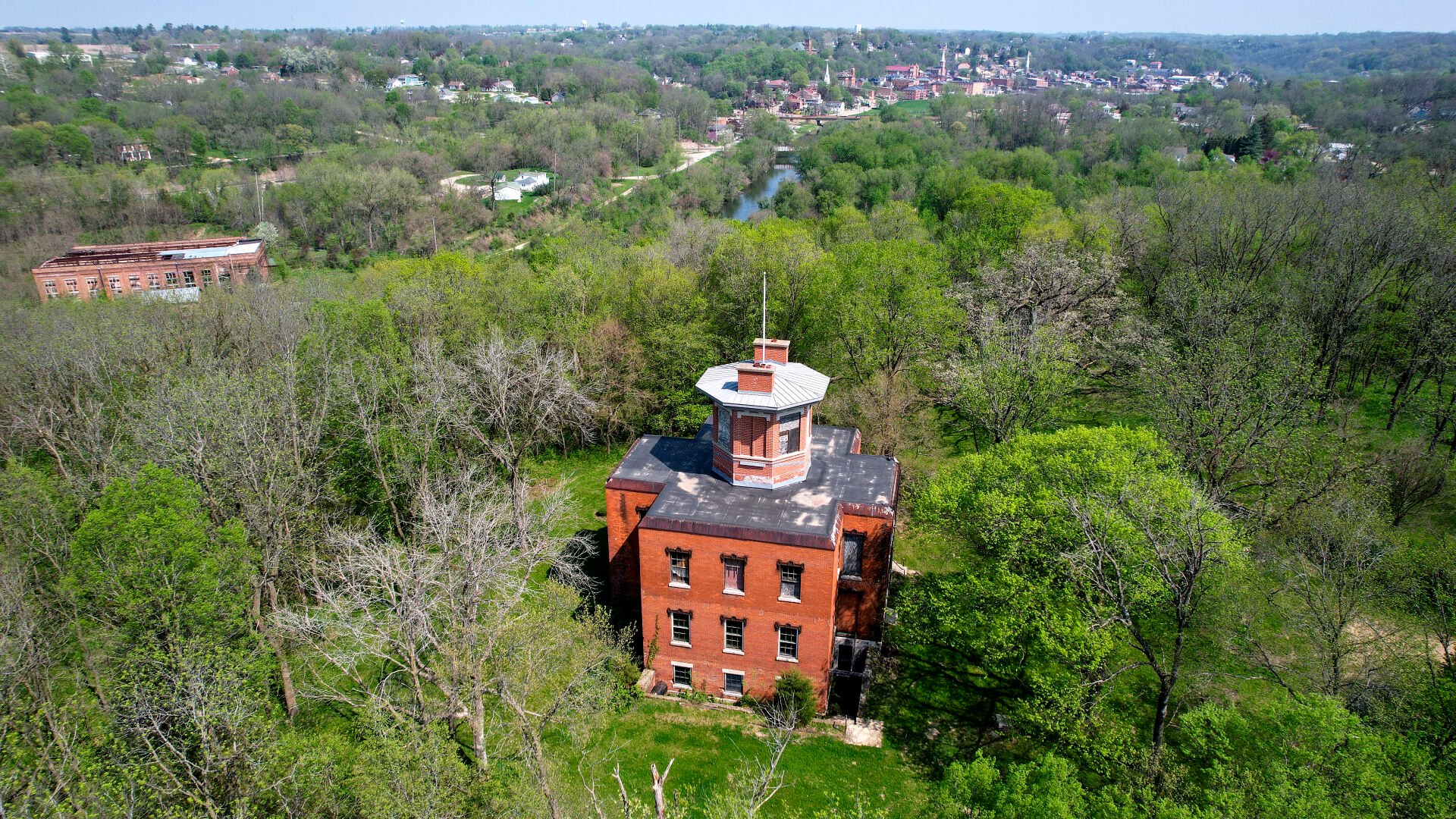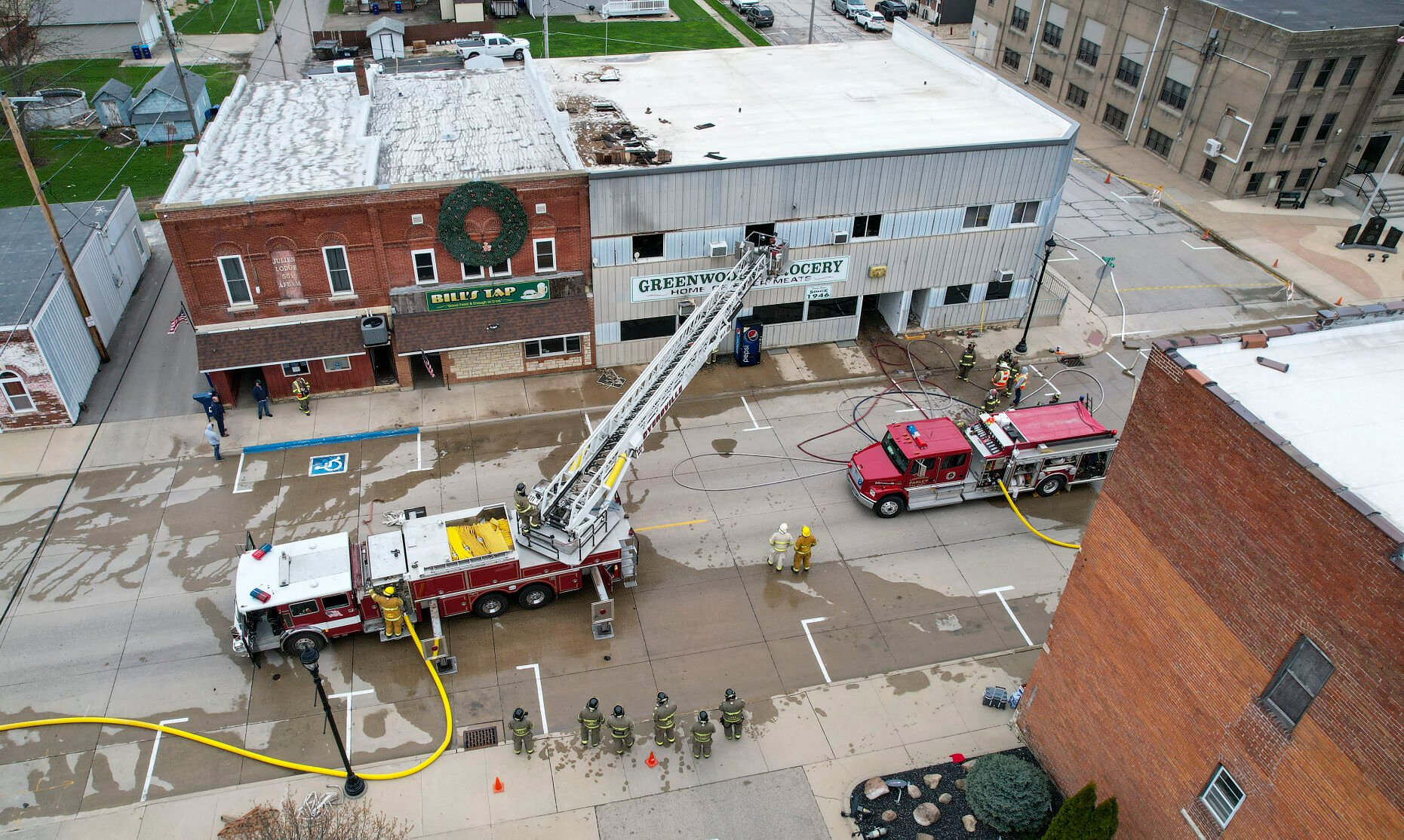The tri-state area saw the announcement of many major business developments in 2022, including an $80 million investment at Dyersville’s Field of Dreams, multiple substantial housing projects and a slew of manufacturing company expansions.
Meanwhile, local employers continued to struggle with a stagnant workforce, and a longtime staple of the Dubuque area’s gambling offerings came to an end with the final season of racing at Iowa Greyhound Park.
Here are the Top 10 local business stories of 2022, as chosen by the Telegraph Herald’s editorial staff.
Major development kicks off at Field of Dreams
In April, officials with Go the Distance Baseball, which owns the Field of Dreams movie site in Dyersville, unveiled plans for an $80 million investment at the site. Construction kicked off in September.
Dubbed “Project Heaven,” the work is slated to include nine new ballfields, team dormitories, a fieldhouse and jogging trails on a recreational sports complex 70 acres north of the movie site. Developments also will include a 104-room boutique hotel across Lansing Road from the Field of Dreams, as well as an RV park and outdoor amphitheater near the movie site.
The project is slated to be completed in phases, with the goal of completing the ballfields by summer 2023 and the entire project by 2025.
The development comes after it was announced in September 2021 that This is Heaven LLC — a venture headed by Major League Baseball Hall of Famer Frank Thomas and real estate developer and entrepreneur Rick Heidner — purchased all of the interest in Go the Distance Baseball owned by the Denise M. Stillman Trust.
In addition to “Project Heaven,” a permanent, 3,000-seat stadium around the Major League Baseball field adjacent to the movie site is in the works. Investment in that project is expected to total $50 million.
Workforce challenges grip local employers
A nationwide labor shortage that began amid the COVID-19 pandemic continued to plague area employers in 2022.
Local unemployment rates remained low throughout the year. In September 2022, local unemployment rates ranged from 1.8% in Delaware County to 3.5% in Crawford County, Wis.. That month, Dubuque County’s unemployment rate was 2.6%, lower than the statewide average of 2.7% and the national average of 3.5%.
The total number of jobs in the Dubuque metropolitan area reached its highest since the onset of the COVID-19 pandemic, with 59,600 jobs in the Dubuque metro area in October.
However, the labor force participation rate remained below pre-pandemic levels, with preliminary U.S. Bureau of Labor Statistics figures from October placing Dubuque County’s labor force more than 1,200 workers below February 2020.
Attracting and retaining workers made Dubuque Area Chamber of Commerce’s 2023 local legislative agenda. The agenda was released at the Tri-State Mayors Breakfast this month, with officials there citing housing, transportation and child care as critical barriers to address in order to grow the area’s workforce.
Dubuque loses commercial air service, secures new, ultra-low-cost carrier
In June, American Airlines announced its decision to end service to Dubuque and three other cities due to a pilot shortage.
American Airlines, which then was Dubuque Regional Airport’s only commercial carrier, was offering twice-daily flights between Dubuque and Chicago’s O’Hare International Airport that ended Sept. 7, though the airport continued to serve corporate, charter and private aircraft.
City and economic development officials pledged to prioritize restoring commercial air service to the city. In early October, the Dubuque City Council and Dubuque County Board of Supervisors agreed to each contribute up to $500,000 as part of a two-year agreement to provide a minimum revenue guarantee to an ultra-low-cost airline and bring weekly leisure air service to the airport.
In November, it was announced that Avelo Airlines will offer direct flights between Dubuque Regional Airport and Orlando International Airport on Wednesdays and Saturdays starting Jan. 11.
As of early December, Avelo had sold at least 24% of its available tickets for the first four months of flights, according to information provided to the Dubuque Area Chamber of Commerce Air Service Task Force.
Manufacturing businesses expand facilities, workforces
An array of local manufacturing businesses announced plans to expand their facilities and workforces in the past year.
In January, Progressive Processing and parent company Hormel Foods Corp. announced a $43 million remodel and purchase of new equipment at its Dubuque facility, creating 38 jobs and supported by state tax credits and tax refunds. The same month, Klauer Manufacturing also earned state tax credits and tax refunds for a $14 million project to expand its facility by 73,000 square feet and add 16 jobs.
After starting production in Dyersville earlier in the year, refrigeration systems manufacturer Zero Zone announced plans in July to add four more production lanes and create 40 to 48 jobs. Simmons Pet Food in Dubuque announced that a second pet food production line would begin operating by August and add more than 30 jobs.
In September, Ancient Brands Milling broke ground on a $26.5 million, 92,000-square-foot facility in Dyersville’s 20 West Industrial Park. The facility will increase the company’s capacity from 2.5 million pounds of puffed product to 30 million pounds and add at least 17 jobs.
Other notable manufacturing expansion announcements included:
- Behnke Enterprises, Farley: $4.3 million, 18,750-square-foot expansion and addition of 34 jobs.
- Camso Manufacturing, Peosta: $20 million facility upgrade and addition of 33 jobs.
- Dubuque Screw Products Inc.: $2.5 million, 28,000-square-foot expansion and addition of 10 jobs.
- Geisler Brothers Co., Dubuque: $840,000, 7,200-square-foot expansion and purchase of new manufacturing equipment, creating 10 jobs.
- Green Industrial Supply Inc., Dubuque: $7.8 million, 97,000-square-foot expansion and addition of 10 jobs.
- Rite-Hite Environmental Enclosures, Dubuque: addition of a third shift and 100 jobs.
- TriState Quality Metals, Dubuque: $2 million, 31,000-square-foot expansion.
Child care centers garner state funding, complete expansions
Local child care centers and organizations received millions of dollars in state funding this year to build new centers or expand existing ones.
Holy Family Catholic Schools in Dubuque completed a renovation of Holy Ghost Early Childhood Center and has started another at St. Joseph the Worker Early Childhood Center, which ultimately will result in the expansion of capacity at both facilities. A total of $1.6 million in state funding helped boost those projects.
Hirschbach Motor Lines received a $630,000 grant to support its efforts to create an employee child care center near its corporate headquarters on Kerper Boulevard. Romper Stompers Childcare Center used more than $450,000 in state funding for its new sister location, Romper Room Childcare Center, which opened in early November in Dubuque.
Dubuque Dream Center became a licensed child care center this year, and St. Mark Youth Enrichment plans to open an early childhood center next year with a focus on social-emotional learning.
In September, Dubuque Initiatives received a $2.16 million state grant for a new “multi-employer” child care center at Dubuque Industrial Center West, and Cottingham & Butler’s Project Stork received
$3 million for a downtown Dubuque child care facility for both employees and the community.
Meanwhile, Dyersville Industries plans to construct an 8,000-square-foot, 131-slot child care center in 20 West Industrial Park, which will be run by The Kid Project.
Major housing, apartment developments see movement in Dubuque
Dubuque saw movement on several large housing and apartment developments this year, including two major projects in the Northwest Arterial corridor.
In April, local development group Switch Homes proposed to construct 105 single-family homes and two multi-residential buildings on an 80-acre parcel between the Northwest Arterial and West 32nd Street.
Residents of nearby Tiffany Court, which would be used as an access point for the new subdivision, expressed concern about increased traffic demands the development would place on their neighborhood. The developer then was required to complete a traffic study, which found that the planned subdivision would not over-congest any intersections along West 32nd or the Northwest Arterial.
Matt Mulligan, head of Switch Homes, previously said the first phase of the project will consist of 56 single-family units, the first of which could be completed by spring 2024.
Not far away, developers Eagle Construction and Talon Development plan to begin construction next year on a $60 million project to create a 390-unit apartment complex at the end of Plaza Drive.
In November, City Council members voted to approve an urban revitalization plan for the project, which will include 13 apartment buildings with 13 detached, multi-stall garages. The urban revitalization area designation lets developers secure tax-abatement housing incentives.
After nearly 40 years, greyhound racing ends
It was the end of an era this spring as Iowa Greyhound Park in Dubuque held an abbreviated final season from April 16 to May 15. The park opened in 1985, and in its early years, the money wagered on live racing there topped $65 million annually.
Multiple factors contributed to the park’s gradual decline, including the addition of several Wisconsin tracks in the 1990s and a 2014 deal approved by state lawmakers that allowed casinos in Dubuque and Council Bluffs, Iowa, to sever ties with the greyhound industry.
Another blow to the local racing industry came in 2018, when Florida residents approved a constitutional amendment to eliminate greyhound racing in the state at the end of the 2020 season. Dogs that raced in Dubuque frequently split their time between Iowa Greyhound Park and tracks in Florida, and the decrease in operational venues meant greyhound breeding declined significantly, sparking a shortage of available dogs.
The former site of greyhound racing in Dubuque soon could look very different.
Officials with the DRA — the nonprofit license holder for both Dubuque casinos — have outlined a number of ideas for developing Chaplain Schmitt Island, including the demolition of the racetrack and construction of an amphitheater in its place, along with a trail system connection project.
Viking Cruises begin making stops in Dubuque
After months of delays, a massive cruise ship made its first stop in Dubuque on Sept. 6 as part of Viking Cruises’ maiden voyage on the Mississippi River.
The 450-foot vessel boasts five decks and can accommodate 386 guests in 193 rooms, with a crew of 148. Multiple sold-out cruise stops in Dubuque were slated for the fall, with fare prices ranging from $5,299 to $28,999.
City officials planned to complete an expanded dock to accommodate the Viking ship, but the dock had not been constructed because of delays in obtaining the necessary permits. Instead, the city dredged along the riverfront to accommodate the Viking ship, and the dock project now is expected to begin next year. Viking will contribute 50% of the project costs and will have priority docking rights when its ship is in town.
Galena Marine Hospital project sparks controversy
A major resort project centered around a historic Galena structure sparked resident concerns throughout the year.
True North Quality Homes LLC and sister company Bien Vie plan to restore Galena Marine Hospital and construct more than 100 cottages, a café building, a restaurant and event space, outdoor dining areas, a vineyard, walking trails and other amenities as part of a resort project called The Parker.
Galena residents have raised concerns with the project, including increased safety risks along nearby roads, negative impacts on surrounding property values and their belief that the project does not conform to the city’s comprehensive plan. However, several City Council and zoning board members have said the project would boost local tourism and attract new visitors.
In May, the council approved a planned unit development for the The Parker and the annexation of property for the project.
In June, homeowner Wendy Clark sued the city, True North Quality Homes and Bien Vie, alleging city officials failed to meet the requirements of city codes and state law in approving rezoning requests for the project and did not adequately consider its impacts on nearby residents.
Original plans for the Parker spanned nearly 80 acres, but council members in November approved a zoning amendment and annexation of an additional 18 acres on the west side of the property, a new entrance, reworked roadways and expanded walking trails and vineyards.
Parker project officials hope to bring finalized plans for the next phase of the project to the city’s Zoning Board of Appeals in the coming months.
Farley loses grocery store
In May, residents of Farley saw the loss of the town’s only grocery store and the apartments above it when a fire broke out in the building housing Greenwood’s Grocery at 112 First St. NW.
No injuries were reported in the fire, which was caused by an electrical malfunction from a faulty freezer unit. Adjacent business Bill’s Tap suffered smoke damage, but firefighters contained the blaze to the Greenwood’s building, and Bill’s Tap reopened about two weeks after the fire.
Greenwood’s Grocery had operated in Farley since it opened in 1946 and was known for its support of community events. The store had a 1950s-style meat counter, and its kitchen staff offered a daily lunch special and catered events.
Months after the fire, owner Tim Greenwood said he was continuing to explore options for reopening the store, whether that be at its original location or elsewhere in town.


